Tradition holds that the only thing we’re supposed to watch on New Year’s Eve is an assortment of minor celebrities doing their best to entertain us before the ball drops in Times Square – but as any self-respecting film buff knows, there are any number of movies whose plots revolve in some way around the changing of the calendar year, and quite a few of them are a lot more entertaining than any New Year’s Rockin’ Eve. With that in mind, we’ve taken a cross-section sampling of New Year’s flicks from various genres, touching on some classics and a few surprises along the way. Break out the bubbly, because 2017 is almost here, and we’re celebrating Total Recall style!
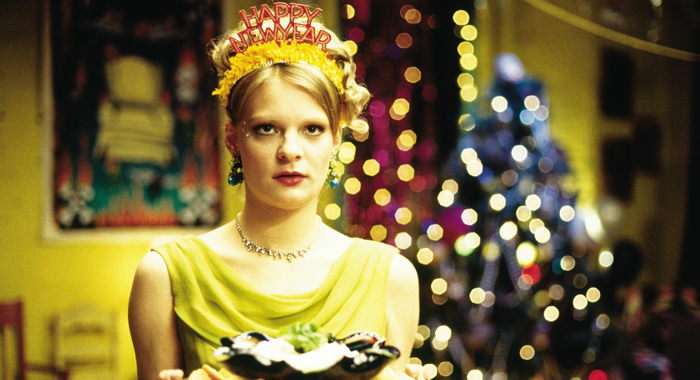
At 29 percent on the Tomatometer, it isn’t one of this list’s biggest critical winners, but there’s no denying the New Year’s Eve-ness of 200 Cigarettes — the entire film takes place on December 31, 1981, and follows the multitudinous narrative arcs of a group of partygoers as they prepare to assemble at a NYE bash being thrown by a neurotic New Yorker (Martha Plimpton). Despite appearances from a gaggle of familiar faces (including Christina Ricci, Janeane Garafalo, Ben and Casey Affleck, and Courtney Love), Cigarettes failed to make much of an impression during its February theatrical run, but it did enjoy the support of critics like Phil Villarreal of the Arizona Daily Star, who called it “An underrated, entertaining lark of a Tarantinoesque film.”
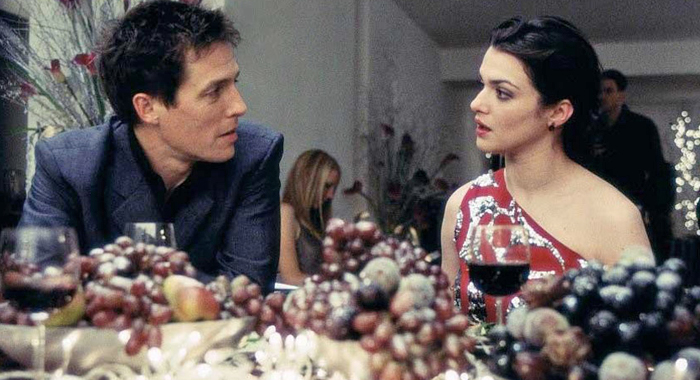
While it could be argued that this 2002 Hugh Grant dramedy hit isn’t exactly a “New Year’s movie,” it’s certainly true that the holiday represents a significant turning point for the main character, Will Freeman (Grant), whose journey from shallow layabout to feeling adult human begins when he meets the luminous Rachel (Rachel Weisz) at a New Year’s Eve party. Toss in the warm-hearted Christmas finale, and About a Boy is a film with enough holiday spirit to make the cut. As Manohla Dargis wrote in her review for the L.A. Weekly, “There’s not much more to this adaptation of the Nick Hornby novel than charm — effortless, pleasurable, featherweight charm.”
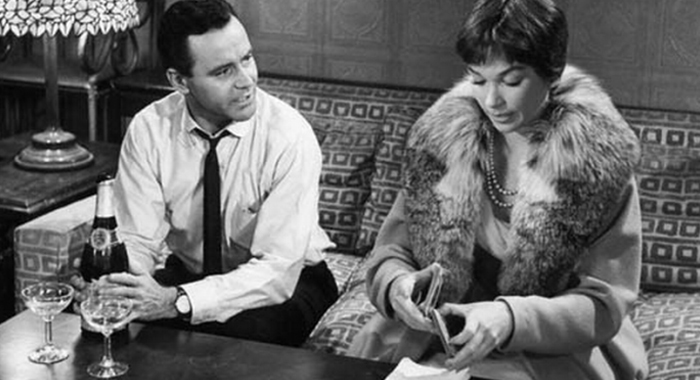
How do you follow up a masterpiece like Some Like It Hot? For Billy Wilder, the answer was simple: Reunite with Jack Lemmon for one of the most honest (and surprisingly dark) comedies of the ’60s. Lemmon leads The Apartment as C.C. Baxter, a low-level cog in the gears of a major New York City insurance company who is manipulated by his managers into letting them use his apartment for their frequent extramarital activities. Too weak-willed to challenge his superiors, Baxter trades his silence for promotions until he realizes his firm’s personnel director (Fred MacMurray) has been carrying on with the elevator operator (Shirley MacLaine) for whom he’s silently been carrying a torch. This sets in motion a chain of events that culminates — on New Year’s Eve, natch — with the charmingly cynical Wilder equivalent of a happy ending. Daring for its time, The Apartment is noteworthy not only for its rock-solid script and collectively strong performances from its cast, but for the quiet truths it communicates underneath the laughs. As Roger Ebert wrote, “There is a melancholy gulf over the holidays between those who have someplace to go, and those who do not. The Apartment is so affecting partly because of that buried reason.”
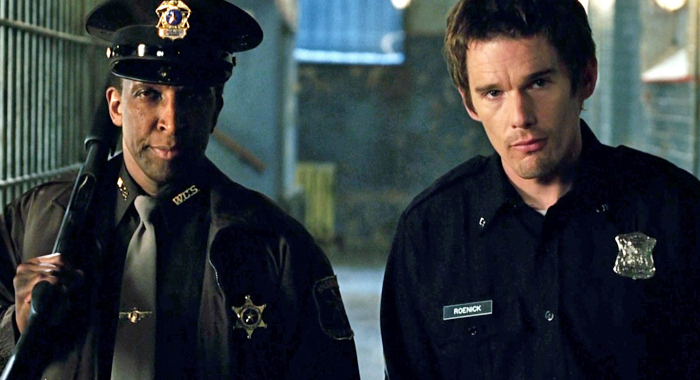
Jean-François Richet’s remake of John Carpenter’s 1976 thriller retains the same basic gist of the original — a straight-arrow cop (Ethan Hawke) joins forces with a crook (Laurence Fishburne) to defend his shuttered precinct against a gang of criminals — while moving the action to New Year’s Eve. Not exactly the most festive way to spend the last night of the year, but the updated Assault on Precinct 13 proved entertaining for critics like Daniel Etherington of Film4, who called it “A dark, exciting and enjoyable action-thriller for adolescent boys of all ages.”
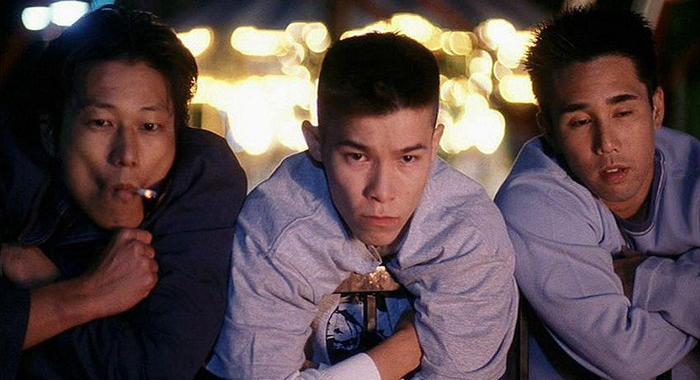
Think you’ve been to some pretty terrible New Year’s Eve parties in your day? Just be glad you weren’t invited to the bloody beatdown that transpires during the climax of Justin Lin’s Better Luck Tomorrow. A desperately grim look at the lives of overachieving suburban teens, Luck drops its protagonists into a downward spiral of drugs, crime, violence, and jealousy… and when that midnight kiss finally comes, it’s less a celebration of the new year than a doomed attempt to cling to some sense of normalcy. “It’s not a perfect work,” admitted Tom Long of the Detroit News, “but it is so filled with energy, angst, talent, authenticity and passion that it stands heads above most supposed youth-culture releases.”
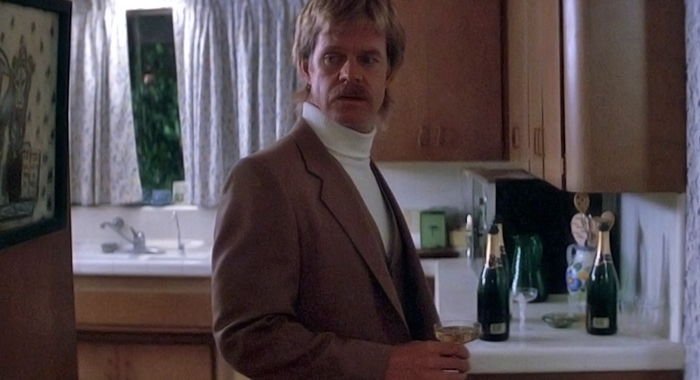
The next time you’re stuck at a dud of a New Year’s Eve party, sitting around eating bad pizza and waiting for the ball to drop in Times Square, just remember: It could always be worse. You could, for instance, have been a guest at the shindig thrown by Little Bill (William H. Macy), the Boogie Nights character who rings in 1980 by killing his wife and her boyfriend — and then turns the gun on himself. For the rest of the movie’s characters, this ugly incident is only the beginning of a long descent into the seamy side of the early ’80s; for Nights itself, however, it’s one of a handful of harrowing sequences in a film that established writer/director Paul Thomas Anderson as a star while delivering an unexpectedly sweet message. As Jeffrey M. Anderson of Combustible Celluloid wrote, “If it weren’t for the porn, drugs, and violence, this would be an ideal movie to take the kids to. It’s all about belonging, and sticking with your family.”
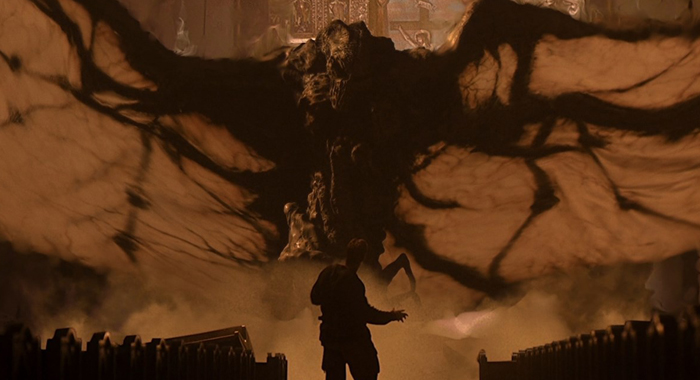
The last few months of 1999 were a strange time, what with all the Y2K hysteria and general end-of-the-century hoopla the human race seems to fall prey to every hundred years. But for sheer loud, loopy weirdness, none of it held a candle to End of Days, the Peter Hyams action thriller that gave us Arnold Schwarzenegger as Jericho Cane, the retired cop who ends up battling Satan (played, in a bit of perfect casting, by Gabriel Byrne) for control of the womb of Christine York (Robin Tunney), the woman prophesied to conceive the devil’s child on New Year’s Eve, 1999. One of two movies founded on eschatological fantasy that year (the other, Stigmata, also starred Byrne), End of Days benefited from a new Guns N’ Roses song on the soundtrack, as well as a scene in which Schwarzenegger’s character launches a grenade at Satan. Sadly, critics were unmoved; as James Sanford of the Kalamazoo Gazette described it, watching Days is “sort of like listening to that old Toto album tucked away somewhere in your music collection. You remember thinking you used to like this kind of stuff, but you can’t quite recall why.”
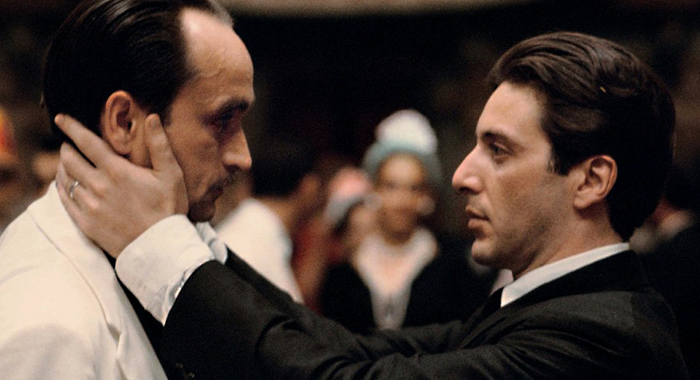
One of the most critically and commercially successful sequels of all time, Francis Ford Coppola’s The Godfather Part II traces the bloody decline of the Corleone clan through a series of double crosses, power plays, and the inexorable corruption of power. At its crux is the infamous “kiss of death” scene that unfolds at a New Year’s Eve party hosted by doomed Cuban dictator Fulgencio Batista: while other partygoers are enjoying the festivities, Michael Corleone (Al Pacino) confronts his treacherous brother Fredo (John Cazale) — who tried to have him assassinated at the beginning of the film — with the bone-chilling kiss and the words “I know it was you, Fredo; you broke my heart.” The shattering of the brothers’ bond represents a point of no return for Michael, and watching it unfold against the backdrop of a celebration of hope and renewal makes it even more heartwrenching — one more reason Godfather Part II is, in the words of Dan Jardine of the Apollo Guide, “The mother of all sequels.”
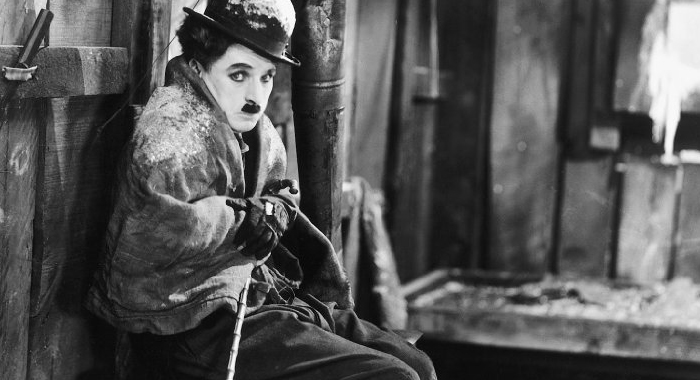
Like most holidays, New Year’s Eve is meant to be spent with friends and family — and in the movies, any character who spends the evening alone is more than likely feeling pretty melancholy. Charlie Chaplin’s 1925 classic The Gold Rush provides a particularly poignant example with its classic New Year’s Eve sequence, in which Chaplin is duped into believing the object of his affection will be stopping by his poverty-stricken cabin to celebrate, only to be stood up — and eventually fall asleep at his table, dreaming he’s the life of the party after all. Calling it “the outstanding gem of all Chaplin’s pictures,” Mordaunt Hall of the New York Times wrote, “Here is a comedy with streaks of poetry, pathos, tenderness, linked with brusqueness and boisterousness.”
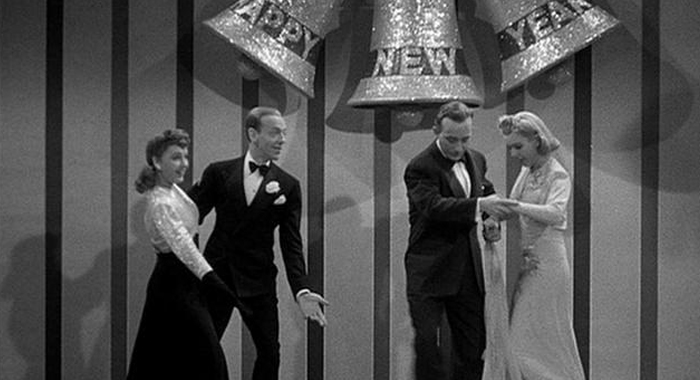
Odds are, you’ve had a little more to drink than you should on New Year’s Eve. You’ve probably danced, too — and you may have even fallen in love. But you probably haven’t done it with as much style as Ted Hanover (Fred Astaire), the jilted song-and-dance man who spies Linda Mason (Marjorie Reynolds) across a dance floor and spends the holiday providing a drunken kickoff to one of the more entertaining love triangles in cinematic history. Over the course of a year’s worth of holidays — including a pair of New Year’s celebrations — Ted tussles for Linda’s affections with his on-again, off-again partner, Jim Hardy (Bing Crosby). Holiday Inn generally isn’t considered Crosby or Astaire’s best film, but its 100 percent Tomatometer rating should tell you everything you need to know about just how solid both stars’ filmographies really are. “Call it old-fashioned or old Hollywood fluff,” wrote Christopher Varney of Film Threat, “Holiday Inn is a sweet, pleasant slice of another time in pop entertainment.”